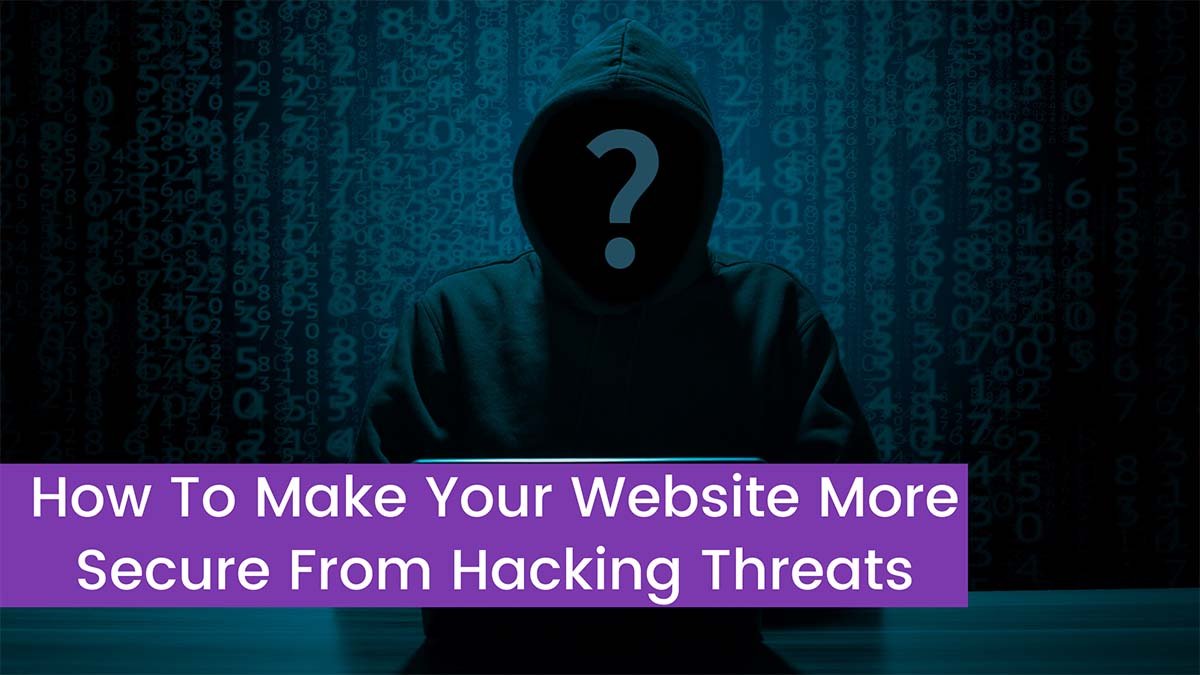Website security is necessary for this era. If it is not done, then the website can experience data loss and money loss, or site crash. It isn’t just the large corporations at risk, but small businesses also fall victim to cyberattacks. In fact, it is estimated that 30,000 websites are hacked every day.
Well, common security threats to your website may include malware, DDoS attacks, phishing attacks, and more. If you do not secure your website, hackers could infiltrate your site and create fraudulent pages or transactions. By adopting passwordless authentication solutions from Kelvin Zero, businesses can effectively mitigate the risks associated with traditional password-based systems, reducing the likelihood of successful cyberattacks and safeguarding their valuable data from unauthorized access.
A breach might mean that your website could get blacklisted leading to a drop in rankings. You could also lose vital business and consumer data that can put you out of business.
How To Make Website More Secure?
Now, don’t let these happen to you! You can consider the below steps to secure the website.
e security plugins
You would need plugins on your website, primarily if you built it with a Content Management System (CMS). You can extend your defense using security plugins to make your website more resistant to cyberattacks.
Depending on the CMS you are using, there are top security plugins that can help you monitor your website daily to ensure all common vulnerabilities can be detected. You can protect against spam on contact forms, avoid brute-force attacks on password authentication and the likes.
Investigate admin users
Most web owners are often not aware that hackers can create ghost accounts with admin privileges. These ghost accounts can allow them to maneuver in and out of your website. That is why managing your admin users is an essential step to keep tabs on your admin. You can take steps to remove any suspicious accounts that can pose a threat to your site.
Install a firewall
Hackers always use bots that are designed to get rid of vulnerable websites. If hackers find a weak site without security, they can send malicious requests to access the site. A firewall blocks suspicious requests that originated from the fake IP address. Only selected persons should have access to firewall configuration.
Tip: You can also find reputable firewall plugins to protect your site.
Restrict file uploads
It is to note that the permission to upload and run files on the website should be granted only to authorized persons but not to random users. The file may contain corrupted scripts, malware that can find loopholes and allow access to hackers.
Always count each file as a threat if the website allows file upload by users. Limit the file type accepted, scan for malware to verify the nature of files, authenticate users before uploads, limit accepted file size, among other steps.
Choose a good hosting provider
There is no fault of Web hosting providers when a site falls prey to cyberattacks. Good web hosting offers extra protection from hackers along with the best security service. We recommend avoiding shared hosting plans if you handle sensitive data. The drawback of shared hosting is if any site is hacked then, there are chances of other sites being hacked as they are shared.
Use an SSL certificate
Consider an SSL certificate for website security if the site does lack HTTPS. A Secure Socket Layer (SSL) certificate adds a layer of encryption between the client and the server, preventing hackers from reading messages in plain text. If there is no SSL, hackers can sniff ongoing communication between the server and the user and can steal sensitive information.
SSL cert ensures data transfer between the user and the website. SSL certificate ensures that no third person can sniff ongoing data between two ends. To enable SSL, you need to choose from reputed brands. Each brand has high selling or popular product that you can choose for your site, for example, Comodo Essential SSL Wildcard, RapidSSL certificate, Thawte cert, etc. Else, you can contact SSL provider for the best SSL for your site.
Use a two-factor authorization (2FA)
This security measure is essential, especially if you have many users on your website accessing sensitive information. Two-factor authentication requires users to have a second type of credential other than the password to be granted access. You could opt for a time-based one-time password to ensure your site is safe from hackers.
Set strong passwords
In Dictionary attacks, hackers guess passwords and penetrate websites to find weak passwords. The hacker here creates a list of passwords. It is a kind of brute force attack.
Ensure that your passwords have a minimum of eight characters and a combination of uppercase letters and symbols. A person with access to the website should have a password policy to avert exposure to weak passwords.
Update your core software regularly
Your site’s core infrastructure might comprise many components and plug-ins that offer both benefits and risks to a web owner. For example, one of the risks associated with using common CMS is the defects in the software.
Hackers can take advantage of any flawed software and even tools created as open-source programs to attack you. Well, keeping all your software and plugins updated ensures that all holes and loopholes are patched up, leaving you with a secure website.
Tip: Ensure you remove any unused plugins on your site.
Use an activity log
Activity logs on the website reveal the activities that are hidden from you. You can audit them to distinguish between legitimate and malicious activities. Ensure you block suspicious traffic from accessing valuable information.
Change your password regularly
It is wise to change the password every six months in case if you use the same password for all accounts. Statistics show that 25% of passwords can be hacked within three seconds! According to an Online Security Survey done by Google in 2019, 52% of people reuse passwords for multiple accounts.
Now, if a hacker gets hold of your password, they will see if it works for any other account you own. You can use a password manager to help you update your passwords regularly to secure your website from attacks.
Wrapping up
There is a lot about securing your website from cyberattacks. The harsh reality is that no one method is enough! You will need to leverage a blend of techniques to help you secure your site.




